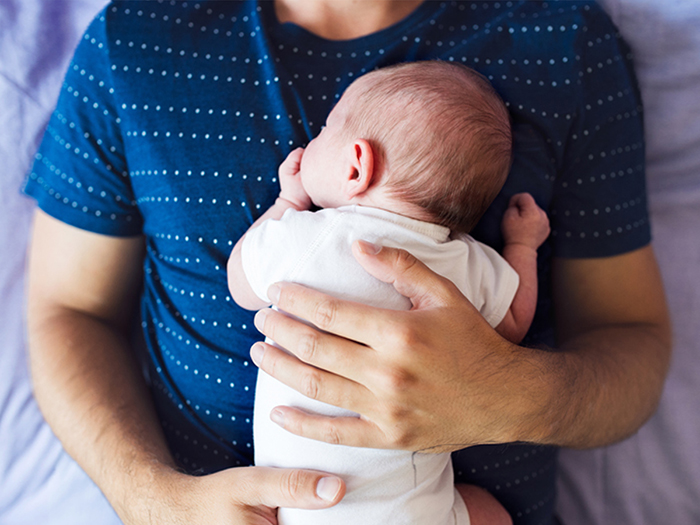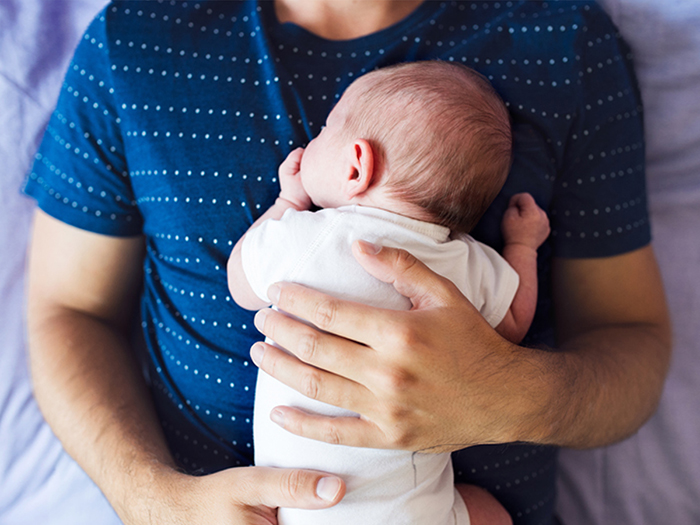
The true cost of babies
 According to parenting magazines and websites, some families spend $10,000 or more on their baby’s first 12 months
According to parenting magazines and websites, some families spend $10,000 or more on their baby’s first 12 months
Babies are a blessing, and what’s also true is they cost a pretty loonie. Toronto-based author Lisa van de Geyn has penned the financial version of What to Expect When You’re Expecting. In her book, Babie$: The Real Story of How Much They Cost (CPA Canada, 2018), van de Geyn details the major expenses that parents-to-be should expect, beginning with the preparation of their baby’s arrival to post-secondary education costs. Below are some of the eye-opening findings:
BUDGET BEFORE BABY
The strongest counsel that van de Geyn gives couples is to look at their finances ahead of time, create a budget—and then start implementing how they’ll be able to live off a single income during maternity/parental leave. “During pregnancy, everyone is Googling baby names and cool strollers, but no one is researching the amount of money it’s going to cost,” says the former editor at TodaysParent.com. “Also, do the maternity leave research; figuring out what it actually pays, compared to what you might be expecting, can be shocking.”
According to parenting magazines and websites, some families spend $10,000 or more on their baby’s first 12 months—and that’s not even taking childcare into account, should the parent return to work before their leave is up. The author suggests not overbuying maternity clothes, baby clothes and play equipment, and perhaps passing more things along to friends.
THE COST OF CHILDCARE
Childcare can be quite costly and with long wait lists—especially in big cities—parents should consider saving money and securing a spot during pregnancy. Toward the end of maternity leave, a couple needs to weigh the cost-benefit of two working parents’ income and the cost of childcare. If parents thought the baby’s first year came with a lot of expenses, says van de Geyn, childcare can represent a “major sticker shock.”
She notes that full-time childcare in Toronto costs, on average, about $21,096 annually. That’s equivalent to a year of university tuition and living on campus— without academic instruction.
CAREER AND MOTHERHOOD
Of course, there are lots of factors to consider when thinking about whether or not to stay home with baby. And the author presents some disheartening information about what the consequences are to a woman’s career if she chooses to step out of the workforce for a number of years. The “motherhood gap” or “child penalty” is a well-documented phenomenon that new parents, specifically mothers, encounter. In 2011, Statistics Canada reported that women who had kids earned about 12 to 20 per cent less than women without kids.
THE ABCS OF RESPS
In addition to the here-and-now costs, there’s also planning for the future—and post-secondary education represents one of the most expensive investments that parents make, writes van de Geyn. By the time children born in 2018 start university or college in 2036, it’s projected that families will be paying up to $80,000 for a four-year undergraduate degree; to live on campus at an out-of-town university, the tally will top $150,000.
“Even if you can’t afford to put money into an RESP, bring it up with family and friends,” she says. “Instead of spending money on toys that kids don’t need, ask them to put money into an RESP.” It’s important to contribute early to reap the compounding interest and maximize the government grant contributions.